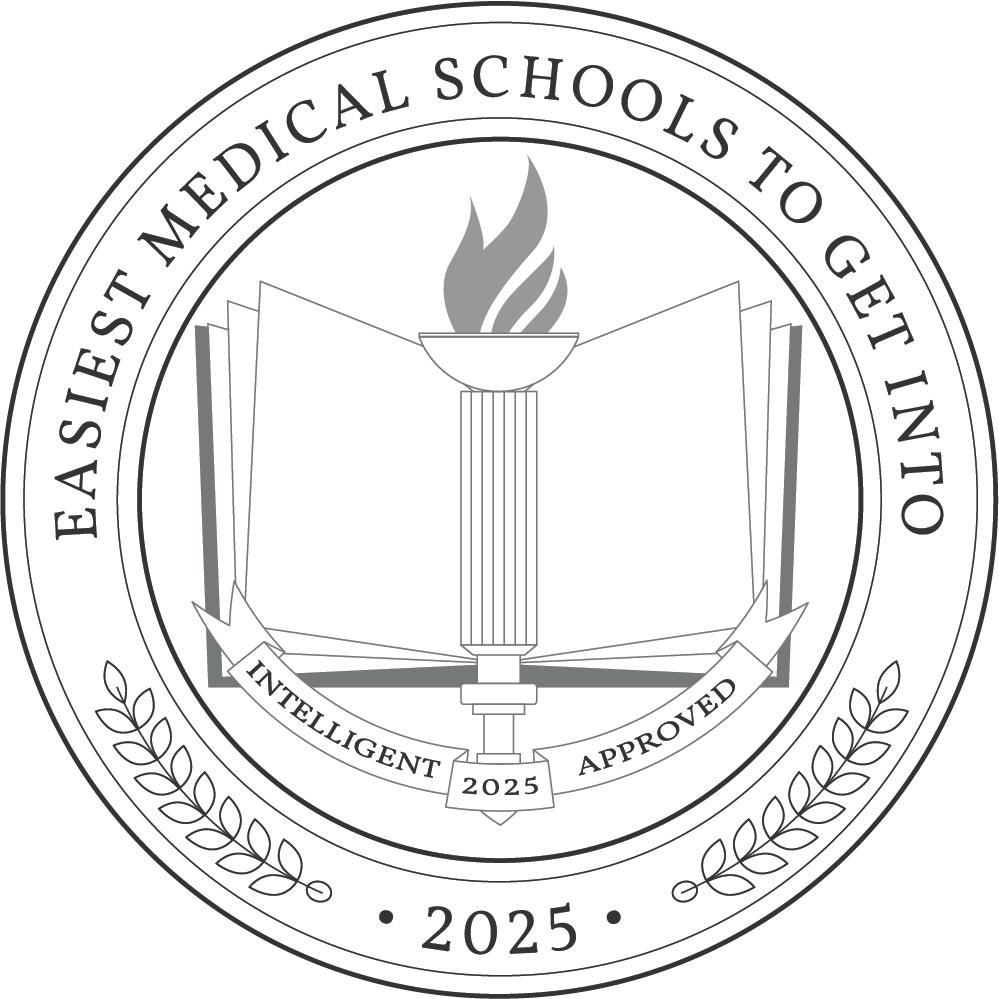Becoming a doctor can be one of the most rewarding and well-paying career paths in the U.S. However, medical schools have a reputation for being hard to get into, with average acceptance rates ranging from 2% to 20% of applicants. To help you choose the right school for you, we’ve researched the best degree programs in the medical field and made this list of the easiest medical schools to get into.
- University of North Dakota School of Medicine & Health Sciences
- University of Missouri-Kansas City School of Medicine
- University of Massachusetts
- East Carolina University
- The University of South Dakota
- University of Mississippi Medical Center
- University of Nevada – Reno
- Augusta University
- Louisiana State University Health Sciences Center-Shreveport
- The University of Arkansas for Medical Sciences
- University of Oklahoma
- Mercer University School of Medicine
- CUNY School of Medicine
- University of Tennessee Health Science Center
- University of Nebraska Medical Center
- Medical University of South Carolina College
- SIU School of Medicine
- University of Virginia School of Medicine
- Marshall University Joan C. Edwards School of Medicine
Why This Matters
Medical professionals are in demand, and the U.S. is projected to have a shortage of doctors over the next decade. But medical schools can’t cut corners, and they have to keep class sizes small to ensure that everyone gets the training they need.
As a result, earning a medical degree requires serious commitment. Students typically need a bachelor’s degree, a high GPA, and a high Medical College Admission Test (MCAT) score. If you don’t meet these criteria, you may think a medical career is out of the question. Fortunately, that’s not the case, and you may be able to attend one of these accredited medical schools that are easier to get into.
Our Ranking Criteria
To put together this list, we researched nearly 50 medical schools throughout the U.S. to ensure we covered various programs and locations. We used data available on each school’s website to narrow down the list based on enrollment, GPA requirements, average MCAT scores, and other factors to determine these 19 top picks.
The 19 Easiest Medical Schools to Get Into
1. University of North Dakota School of Medicine

The School of Medicine & Health Sciences at UND is located in Grand Forks, ND, and offers a significant tuition break for North Dakota and Minnesota residents. They also provide an Indians into Medicine (INMED) program specifically for Native American students. The four-year M.D. program accepts 78 applicants each year, with two years on the Grand Forks campus and two years at clinics elsewhere in the state.
- Location: Grand Forks, ND
- Intelligent Score: 99.93
- Tuition: $36,074 (North Dakota resident), $39,509 (Minnesota resident), $65,312 (non-resident) for first-year medical students
- Accreditation: Liaison Committee on Medical Education
- Student Enrollment: 283
- Average MCAT Score: 507
- Undergrad GPA Requirement: 3.0
2. University of Missouri-Kansas City School of Medicine
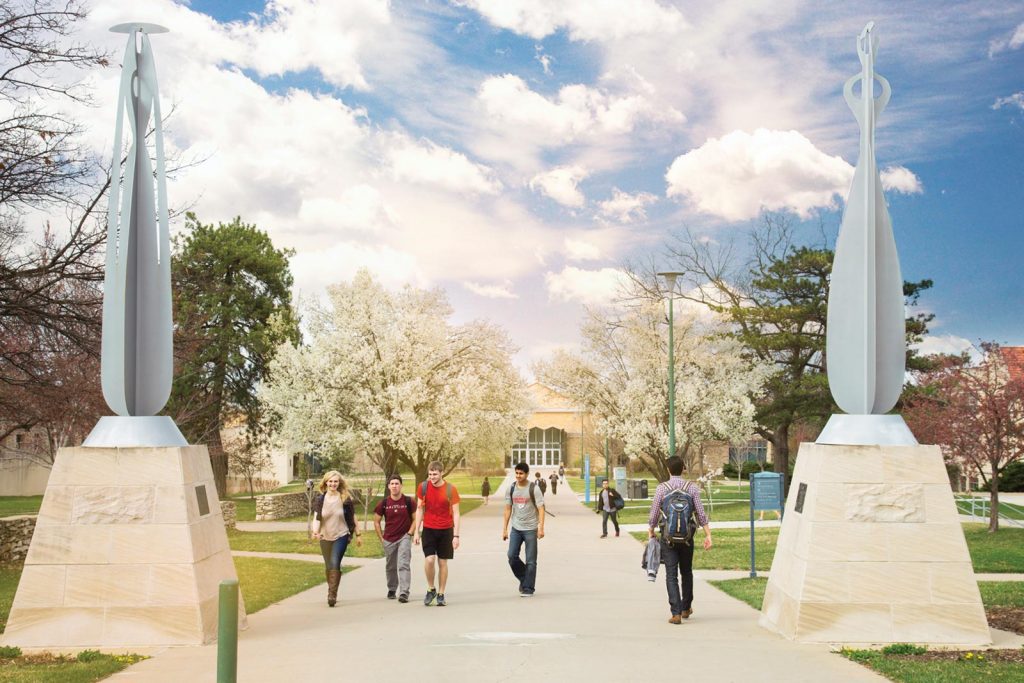
The School of Medicine at UMKC offers a range of degree programs, including a master of health professions education, a master of science in bioinformatics, and a doctor of medicine — as well as a combined B.A./M.D. degree. The combined program takes six years to complete and is open to eligible high school graduates. The school is available to out-of-state students, but applicants from Missouri and nearby states get priority. Students learn in groups of 10-12 and practice on realistic body simulators.
- Location: Kansas City, MO
- Intelligent Score: 99.41
- Tuition: $35,280 (in-state), $68,348 (out-of-state) per year
- Accreditation: Higher Learning Commission
- Student Enrollment: 227
- Average MCAT Score: 500
- Undergrad GPA Requirement: 3.0
3. University of Massachusetts Chan Medical School

UMass Chan in Worcester, MA, is known for its M.D. program, research center, and residency opportunities. This program keeps classes small, with around 162 students per year, and emphasizes diversity and inclusion. The population-based urban and rural community health (PURCH) track takes 25 new students each year and moves between the Worcester and Springfield campuses.
- Location: Worcester, MA
- Intelligent Score: 98.46
- Tuition: $39,380 (in-state), $67,718 (out-of-state) per year
- Accreditation: New England Commission of Higher Education
- Student Enrollment: 686
- Average MCAT Score: 514
- Undergrad GPA Requirement: There is no minimum GPA requirement, but grades are a factor in the admissions process, and matriculants have an average GPA of 3.7
4. East Carolina University Brody School of Medicine

The Brody School of Medicine at East Carolina University is in Greenville, NC. It offers pathways to obtain a Ph.D., M.D., dual degree MD/MBA, and a master’s degree in public health. The M.D. program also provides four distinction track options, in which students can choose an area of independent study and complete a capstone project. Pre-med students may consider the school’s Summer Program for Future Doctors.
- Location: Greenville, NC
- Intelligent Score: 96.59
- Tuition: $22,252 for first-year medical students
- Accreditation: Southern Association of Colleges and Schools Commission on Colleges
- Student Enrollment: 556
- Average MCAT Score: 505
- Undergrad GPA Requirement: 3.2 in prerequisite science courses
5. University of South Dakota Sanford School of Medicine

The Sanford School of Medicine at the University of South Dakota offers M.D. programs and related biomedical degrees. One unique offering is the Frontier and Rural Medicine (FARM) program, which places students on a nine-month track at local clinics to learn about rural medicine. Non-residents must have a close connection with the state, such as having family members in the state, graduating from a high school or college in the state, or being part of a local federally-recognized tribe.
- Location: Vermillion, SD
- Intelligent Score: 95.83
- Tuition: $32,105 (in-state), $76,935 (out-of-state) per year
- Accreditation: Higher Learning Commission, Liaison Committee on Medical Education
- Student Enrollment: 269
- Average MCAT Score: 509
- Undergrad GPA Requirement: 3.1
6. University of Mississippi Medical Center — School of Medicine

The School of Medicine at the University of Mississippi Medical Center is a four-year program in Jackson, MS, that leads to a doctor of medicine degree. Students participate in research, training, and clinical practice, focusing on caring for Mississippi’s diverse residents and underserved populations. It is the only medical center of its kind in Mississippi, and it aims to create robust professional networks and career opportunities.
- Location: Jackson, MS
- Intelligent Score: 95.81
- Tuition: $36,273 for first-year medical students
- Accreditation: Southern Association of Colleges and Schools Commission on Colleges
- Student Enrollment: 407
- Average MCAT Score: 504
- Undergrad GPA Requirement: 3.0
7. University of Nevada, Reno School of Medicine

The School of Medicine at UNR offers degree programs in speech pathology, physician assistant studies, and more. Students can choose from an M.D. program or combined degrees through the School of Community Health Sciences. The medical school has a 12 percent acceptance rate and maintains small class sizes with only 70 students per class. Students participate in a standardized patient program and a clinical simulation lab.
- Location: Reno, NV
- Intelligent Score: 95.76
- Tuition: $31,758 (in-state), $59,008 (out-of-state) for first-year medical students
- Accreditation: Higher Learning Commission, Liaison Committee on Medical Education
- Student Enrollment: 324
- Average MCAT Score: 509
- Undergrad GPA Requirement: 2.8
8. Augusta University — Medical College of Georgia

The Medical College of Georgia at Augusta University specializes in dual degrees so that students can combine their M.D. with a Master of Business Administration (MBA) or a Master of Public Health (MPH). The combined MBA program teaches both clinical and management skills so students are prepared to navigate the U.S. healthcare system. The M.D./MPH program focuses on community service and public health. The M.D. program takes four years, while the combined program takes five.
- Location: Augusta, GA
- Intelligent Score: 93.75
- Tuition: $14,463 (in-state), $28,925 (out-of-state) per semester
- Accreditation: Southern Association of Colleges and Schools Commission on Colleges, Liaison Committee on Medical Education
- Student Enrollment: 930
- Average MCAT Score: 512
- Undergrad GPA Requirement: 3.0
9. Louisiana State University Health Shreveport
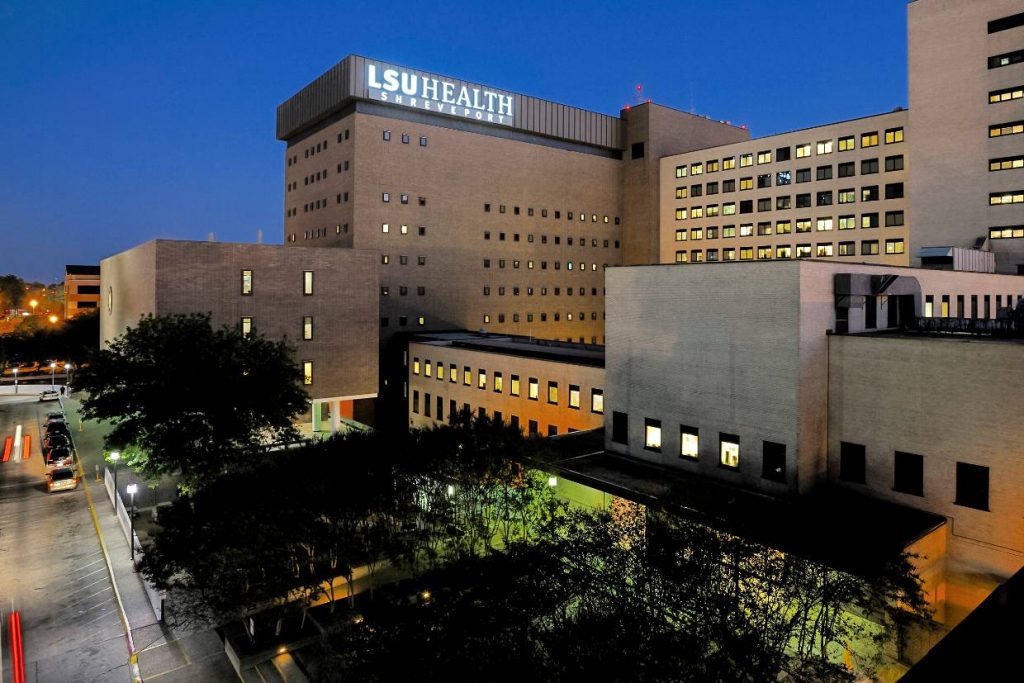
LSU Health Shreveport is the only school of its kind in the northern part of the state, with a class size of around 150 students. Students get access to Lecturio, a video library app that helps them prepare for tests and study on the go. Other degree options include a research distinction track and a joint Ph.D. program through Louisiana Tech. Applicants must take part in a virtual interview for consideration.
- Location: Shreveport, LA
- Intelligent Score: 93.67
- Tuition: $14,276 (in-state), $30,187 (out-of-state) per semester
- Accreditation: Southern Association of Colleges and Schools Commission on Colleges; Liaison Committee on Medical Education
- Student Enrollment: 583
- Average MCAT Score: 507
- Undergrad GPA Requirement: There is no minimum GPA requirement, but grades are a factor in the admissions process, and matriculants have an average GPA of 3.6 to 3.7
10. University of Arkansas for Medical Sciences
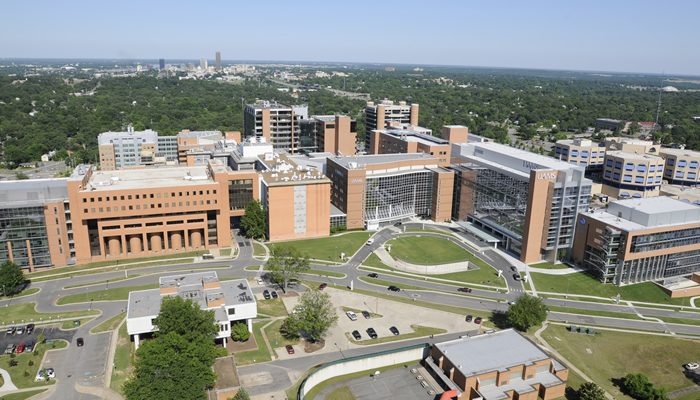
UAMS has been around since 1879 and offers M.D./Ph.D., M.D./MPH, and rural practice programs. All students are placed in one of several academic houses, providing educational, social, and professional support throughout their degree program. It’s also worth noting that this school offers many financial aid opportunities to help you pay for your medical degree, including scholarships, grants, and emergency loans.
- Location: Little Rock, AK
- Intelligent Score: 93.33
- Tuition: $16,505 (in-state), $32,590 (out-of-state) per semester
- Accreditation: Higher Learning Commission, Liaison Committee on Medical Education
- Student Enrollment: 698
- Average MCAT Score: 509
- Undergrad GPA Requirement: 2.7
11. The University of Oklahoma College of Medicine

The College of Medicine at the University of Oklahoma offers three degree options: an M.D., a dual degree (M.D./Ph.D.), and the physician associate program. Students can choose from two tracks offered at two different campuses: the Oklahoma City campus has 140 students per class and access to a 200-acre medical center, while the Tusla track has smaller classes (25-30 students) and a focus on community health.
- Location: Oklahoma City, OK
- Intelligent Score: 90.80
- Tuition: $31,893 (in-state), $67,189 (out-of-state) for first-year medical students
- Accreditation: Higher Learning Commission, Liaison Committee on Medical Education
- Student Enrollment: 658
- Average MCAT Score: 508
- Undergrad GPA Requirement: 3.0
12. Mercer University School of Medicine

The Mercer University School of Medicine offers degree programs at multiple locations in Georgia, including four-year M.D. programs in Macon and Savannah. Students can also apply to a doctoral program in rural health sciences, a master’s degree in family therapy, and related medical programs. Although MUSM is easier to get into than many other medical schools, the M.D. program is only open to Georgia residents.
- Location: Macon, GA
- Intelligent Score: 90.79
- Tuition: $43,856 for first-year medical students
- Accreditation: Southern Association of Colleges and Schools Commission on Colleges; Liaison Committee on Medical Education
- Student Enrollment: 604
- Average MCAT Score: 504
- Undergrad GPA Requirement: MCAT percentile rank times cumulative undergraduate BCPM GPA must be greater than 93
13. CUNY School of Medicine

The CUNY School of Medicine in New York provides a seven-year combined B.S./M.D. program focused on serving underserved communities. Students benefit from a curriculum emphasizing primary care, with early exposure to clinical practice in urban settings. The school’s supportive, community-oriented environment and commitment to diversity make it an ideal choice for students focused on social justice in healthcare.
- Location: Macon, GA
- Intelligent Score: 88.57
- Tuition: $43,856 for first-year medical students
- Accreditation: Liaison Committee on Medical Education
- Student Enrollment: 300
- Average MCAT Score: MCAT is not required for admittance
- Undergrad GPA Requirement: 3.0
14. University of Tennessee Health Science Center — College of Medicine

The University of Tennessee Health Science Center offers various medical degree programs in areas ranging from nursing science to health outcomes and policy research. The application process can be completed entirely online, and there’s no application fee. This program is open to international students, but proof of English language proficiency and verified educational records may be required.
- Location: Memphis, TN
- Intelligent Score: 88.22
- Tuition: $35,084 (in-state), $52,626 (out-of-state) per year
- Accreditation: Southern Association of Colleges and Schools Commission on Colleges; Liaison Committee on Medical Education
- Student Enrollment: 707
- Average MCAT Score: 500 – 510
- Undergrad GPA Requirement: There is no minimum GPA requirement, but grades are a factor in the admissions process, and matriculants have an average GPA of 3.89
15. University of Nebraska Medical Center

The M.D. program at UNMC focuses on improving clinical skills through small-group lessons and patient simulations. UNMC doesn’t have a minimum threshold for GPA or MCAT scores, but the school prioritizes Nebraska residents and those who stand out during the interview process. Students can choose from enhanced medical education tracks such as comprehensive HIV medication and underserved health care.
- Location: Omaha, NE
- Intelligent Score: 82.79
- Tuition: $18,300 (in-state), $24,840 (out-of-state) per semester
- Accreditation: Higher Learning Commission, Liaison Committee on Medical Education
- Student Enrollment: 514
- Average MCAT Score: 515
- Undergrad GPA Requirement: There is no minimum GPA requirement, but grades are a factor in the admissions process, and matriculants have an average GPA of 3.75
16. Medical University of South Carolina College of Medicine
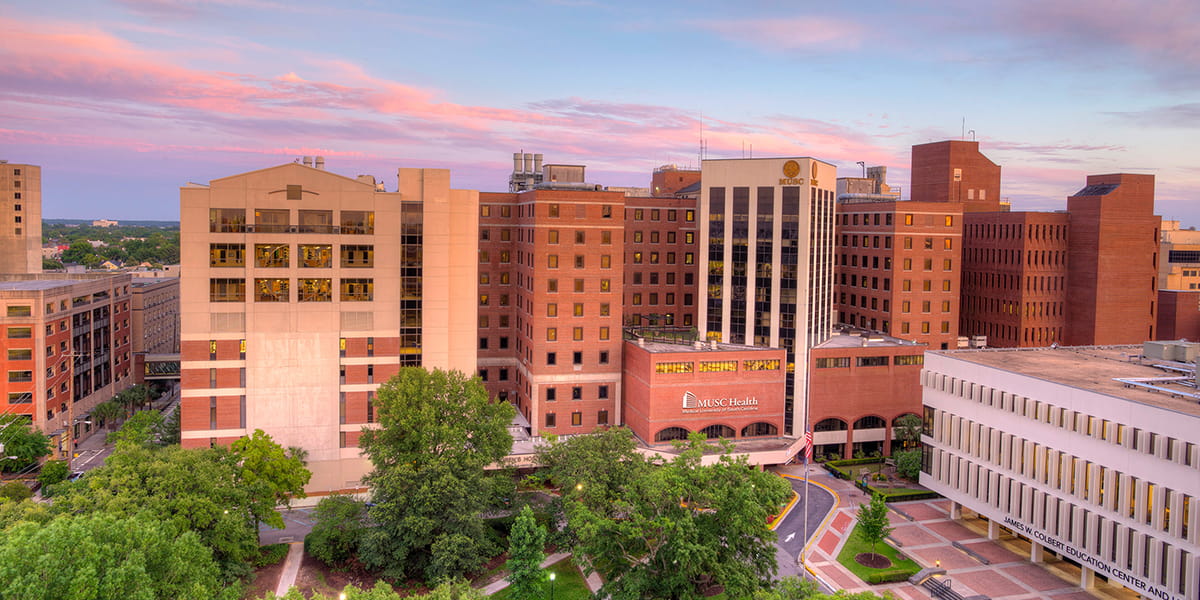
In addition to its standard M.D. program, the Medical University of South Carolina offers an M.D./Ph.D. program and an MPH program. The M.D./Ph.D. program, funded by the National Institutes of Health, is designed to develop future leaders in academic medicine and offers particularly generous financial aid opportunities. If you decide to enter the MPH program, you’ll have three concentrations to choose from — biostatistics, epidemiology, or health behavior and health promotion (a generalist option is also available).
- Location: Charleston, SC
- Intelligent Score: 81.38
- Tuition: $37,500 (in-state), $66,849 (out-of-state) for first-year medical students
- Accreditation: Southern Association of Colleges and Schools Commission on Colleges
- Student Enrollment: 737
- Average MCAT Score: 511
- Undergrad GPA Requirement: 3.0
17. SIU School of Medicine
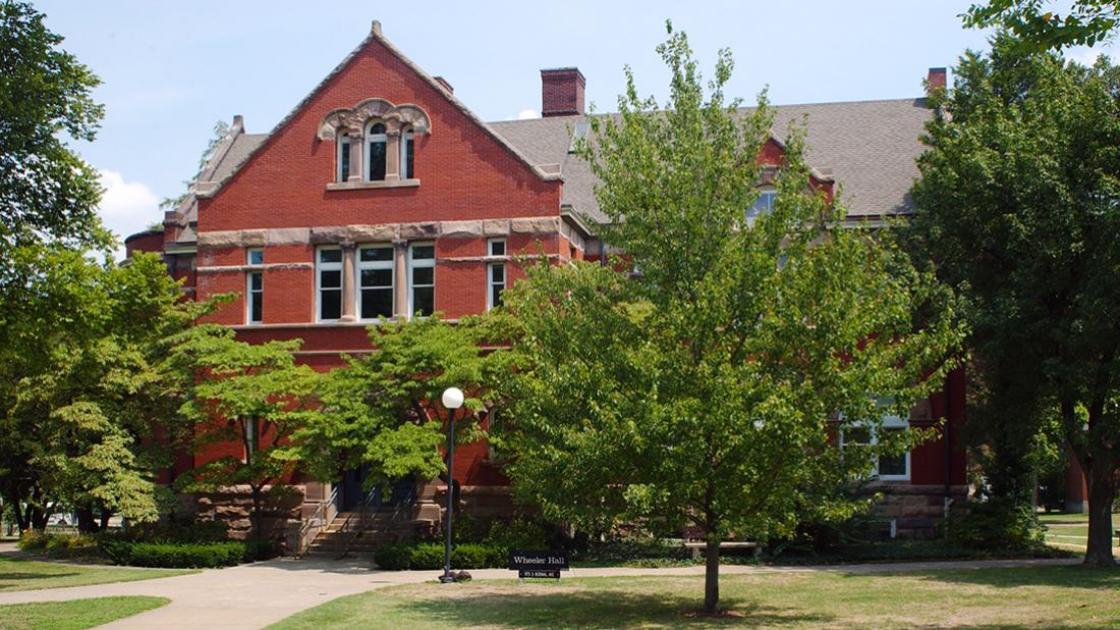
The SIU School of Medicine, part of Southern Illinois University, offers a comprehensive medical education with diverse program options. Students can pursue the M.D. degree with early clinical experiences and combined degrees such as the M.D./J.D. in partnership with SIU’s School of Law and the M.D./M.P.H. with the College of Health and Human Sciences. SIU also offers residency and fellowship programs across numerous specialties and an innovative MEDPREP program for pre-med students.
- Location: Carbondale, IL
- Intelligent Score: 81.32
- Tuition: $41,719 per year
- Accreditation: Liaison Committee on Medical Education
- Student Enrollment: 327
- Average MCAT Score: 508
- Undergrad GPA Requirement: 2.8
18. University of Virginia School of Medicine

The University of Virginia School of Medicine is one of the most historical institutions in the healthcare industry — founded in 1819, this was just the tenth medical school to open in the United States, and its first professor was Dr. Robley Dunglison, the “Father of American Physiology.” This medical school is an excellent choice for students interested in a research career, as the school is currently tied for the #30 spot in U.S. News & World Report’s Best Medical Schools (Research) rankings and offers world-class laboratory facilities.
- Location: Charlottesville, VA
- Intelligent Score: 80.93
- Tuition: $52,328 (in-state), $64,484 (out-of-state) for first-year medical students
- Accreditation: Southern Association of Colleges and Schools Commission on Colleges; Liaison Committee on Medical Education
- Student Enrollment: 926
- Average MCAT Score: 518
- Undergrad GPA Requirement: There is no minimum GPA requirement, but grades are a factor in the admissions process, and matriculants have an average GPA of 3.87
19. Marshall University Joan C. Edwards School of Medicine
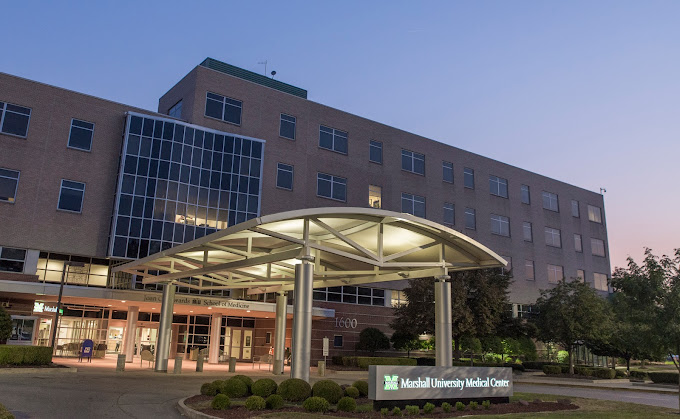
The Joan C. Edwards School of Medicine at Marshall University in Huntington, West Virginia, is dedicated to community-oriented medical education focusing on rural health. In addition to its M.D. program, the school offers a variety of combined degrees, such as the M.D./M.P.H., M.D./Ph.D., and a B.S./M.D. pathway aimed at streamlining medical education for West Virginia students. Residency programs are available in specialties like family medicine, psychiatry, and surgery, supporting its mission to address healthcare needs in underserved regions.
- Location: Huntington, WV
- Intelligent Score: 80.32
- Tuition: $24,988 for WV residents; $59,150 for non-residents
- Accreditation: Accreditation Council for Continuing Medical Education
- Student Enrollment: 313
- Average MCAT Score: 504
- Undergrad GPA Requirement: not listed; average GPA of accepted students is 3.8
Who Should Attend Medical School?
Medical school isn’t just for those who want to become a doctor. Some of these programs can prepare you to work behind the scenes in the healthcare industry instead of in a hospital or clinic. For example, you might choose to attend medical school to:
- Work with disadvantaged communities in rural clinics
- Manage a healthcare organization with an MD/MBA degree
- Improve the healthcare system through data science or public policy
- Become a researcher working on biomedical technology
Whatever your reasons for attending medical school, it’s helpful to have a background in the sciences, which is why many students take pre-med courses or focus on biology and life science courses in high school and college.
While every school has its own admissions requirements, the average GPA for getting into medical school is 3.72, and the median MCAT score is 500. Students with lower scores may be able to compensate in other parts of their applications.
In addition to academic requirements, doctors should have good people skills, including communication and leadership skills, and the ability to work well under pressure. They need to solve problems, stay organized, and have the physical stamina to work long hours at a time.
Finally, it’s important to attend medical school because you want to improve people’s lives — not just for the money or prestige. Depending on your chosen program, you may have to put some of your life goals on hold until you graduate. But once you do, you’ll be well-placed to have a long and rewarding medical career.
What Are the Benefits of Attending Medical School?
There are many reasons to consider medical school, including high earning potential. According to the U.S. Bureau of Labor Statistics, physicians and surgeons earn an average wage of $208,000 annually. As the world’s population ages, medical professionals will continue to be in demand, and a medical degree can lead to a well-paying, long-term career in many parts of the world.
Also, medical professionals don’t have to practice in hospitals or clinics. Some medical students choose to become educators or researchers or work to improve the U.S. healthcare system with a master of public health degree. For many students, a medical degree offers multiple pathways to a stable and rewarding career.
What To Consider Before Applying To Med School
While medical school can be a good choice to pursue a medical career, it’s not right for everyone. Even schools that are easy to get into still require a high level of commitment from their students. In addition to four or more years of study, earning an M.D. requires a medical residency that may involve relocating to a hospital or clinic far from home.
Also, medical school isn’t cheap, even for in-state residents. A healthcare career can pay well, but not until well after graduation, and you may not have time to hold down a side job while you finish your degree. Medical residencies pay an average salary of $42,000 to $48,000 annually after taxes — much less than a doctor’s salary.
These factors can put a lot of strain on medical students and their families, especially if they have student loans. The average student loan debt for medical school is more than $200,000, so it’s important to consider the cost and time commitment before deciding whether medical school is right for you.
